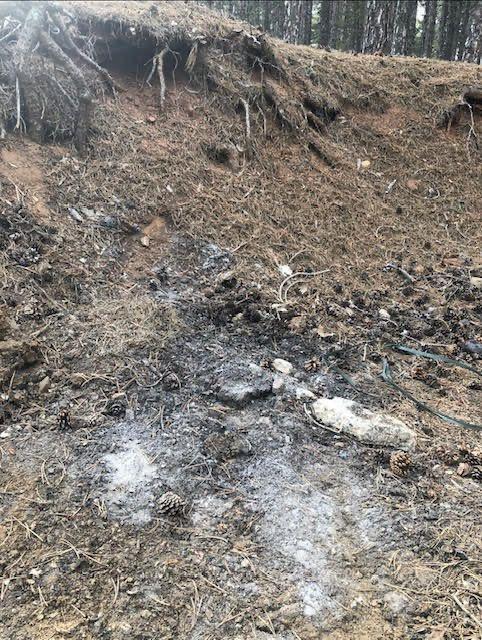

Apostolos Tomaras
The recent devastating wildfire in the mountainous region of Limassol, which caused both human and material losses, has exposed gaps, oversights, and serious questions about the readiness of state services in preventing and combating fires. One established fact, that human activity is the leading cause of wildfires, often goes unheeded, as both the public and authorities fail to act proactively.
The government’s efforts to curb human-caused fires through harsher penalties have yielded limited results. Heavy fines have not prevented prohibited activities during the hot summer months, nor have they stopped risky behavior in high-fire-risk areas such as forests. A similar pattern emerged around the time of the Limassol fire. According to data obtained by Kathimerini Cyprus (“K”), some tenants of state-owned houses in Troodos engaged in dangerous fire-related activities for recreation during the blaze. Summer events held near or within forested areas also remain a concern.
Irresponsibility in Troodos
While communities in Limassol fought to contain the wildfire, some individuals in the Troodos state forest were reportedly “playing with fire.” Photographs obtained by K show makeshift fire pits and grills built by tenants near government houses, where fires or charcoal were used to prepare traditional Cypriot foods. In some instances, minimal safety measures were ignored, and grills were set up dangerously close to homes and trees.
Responsibility for this reckless, and potentially criminal, behavior falls partly on the Department of Public Works, which manages and supervises Troodos government houses. The Forestry Department, tasked with monitoring forests, also failed to act as a deterrent in this case, according to photographic evidence.
Regulations and oversight
Troodos government houses, a legacy of British colonial rule, are managed by the Department of Public Works, which handles maintenance, rentals, and tenant oversight. Tenants, limited to public servants, must comply with 11 rules, primarily enforced through fines.
However, the regulations contain no specific restrictions on fire use in high-risk areas or during periods of extreme heat. Current rules focus on rental procedures, cleanliness, furniture placement, and the hosting of guests, with strict penalties for violations such as unauthorized use of the property or damage to equipment. Fire safety in open spaces, particularly in forested areas, is not addressed. K was unable to obtain a comment from the Department of Public Works.
Forestry Department gaps
The Forestry Department, responsible for forest monitoring, also exhibits gaps. Last week, it issued warnings and heavy penalties for unauthorized camping in forests, with fines up to €5,000 or one year in prison. These measures, however, targeted locations such as Aphrodite’s Baths, Fontana Amorosa, and the Akamas National Forest Park, leaving government houses apparently unmonitored.
A former forestry official noted that the department may have assumed the properties were low-risk or controlled, which proved inaccurate. Several years ago, the Forestry Department proposed designated grilling areas at Troodos government houses for safe recreational use, but the plan was never implemented.
Summer events and wildfire risk
Beyond illegal activities in forests, summer events in non-urban areas remain a potential wildfire hazard. This year, outdoor gatherings, including music festivals, were fewer than in previous years. Notable events included the Feggáros Festival in Kornos, the Farmakas Summer Festival 2025, the Keseta Retro Event at Platres Arena, and 25 other events across Cyprus’ mountainous areas. Organizers said they took preventive measures, including clearing flammable materials and preparing for emergencies.
The Limassol wildfire underscores the ongoing challenges of wildfire prevention, highlighting the need for stricter oversight, clearer regulations, and greater public awareness to reduce human-caused risks in high-fire zones.
This article was translated from its Greek original.
































